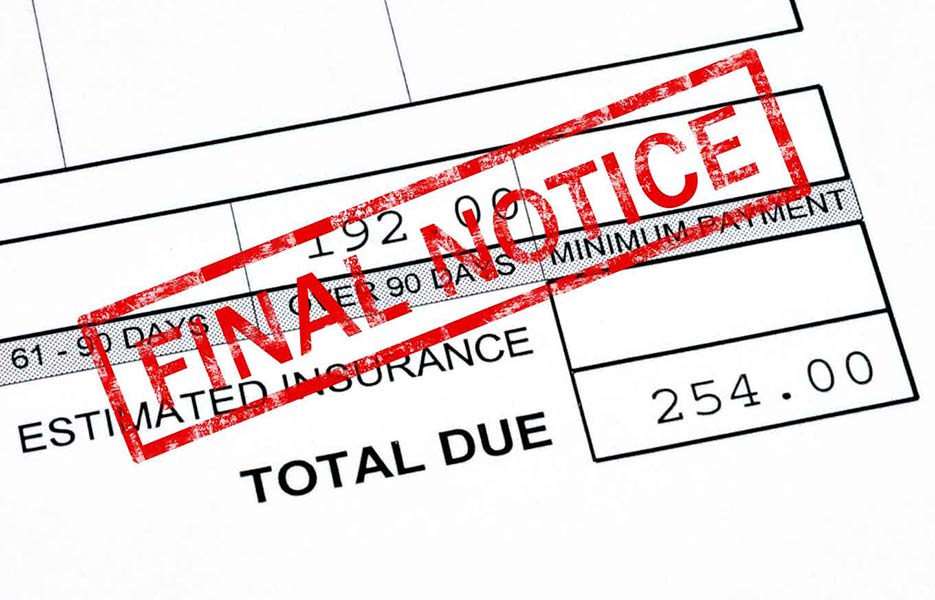Understanding debt collection practices is essential for anyone who has borrowed money. There are many misconceptions about how the process works, and today, we will address one common question: Can a collection agency sell my debt to another agency? The answer might surprise you.

Key Takeaways
- Collection agencies can legally sell your debt to another agency according to the Fair Debt Collection Practices Act (FDCPA). They often do this to maximize profits, manage resources, and focus on more collectible accounts.
- When debt is sold, the new owner must follow the FDCPA guidelines. You’ll receive notification from the new agency, and the transfer may impact your credit score as the debt is reported as charged off by the original creditor and as a collection account by the new owner.
- To protect your rights, keep thorough records, negotiate payment terms where possible, and be aware of the statute of limitations. If necessary, consult an attorney for violations of the FDCPA.
What is a collection agency?
A collection agency is a company that specializes in collecting unpaid debts. They can be classified into different types, such as third-party debt collectors, first-party debt collectors, and debt buyers. Debt collection agencies play an essential role in the debt recovery process, often stepping in when the original creditor is unable to collect the debt themselves.
How Collection Agencies Work
Collection agencies typically purchase debt from original creditors at a discounted price. This allows the original creditor to recover a portion of the outstanding debt while passing the responsibility of collecting the remaining balance to the collection agency. Once the debt has been transferred, the collection agency will attempt to collect payment from the debtor.
Can a collection agency sell your debt?
According to the Fair Debt Collection Practices Act (FDCPA), it is legal for a collection agency to sell your debt to another agency. The FDCPA governs the actions of debt collectors and provides guidelines for how they must conduct themselves when attempting to collect a debt.
Reasons for Selling Debt
There are several reasons why a debt collection agency might choose to sell a debt:
- Maximizing profit and minimizing loss: Debt buyers often purchase delinquent debt for a fraction of its original value. By selling the debt to another agency, the current debt holder can recoup some of their investment and reduce potential losses.
- Prioritizing collection efforts: Debt collection agencies have limited resources and must prioritize which debts to pursue. By selling debts, they deem less likely to be collected, they can focus on more profitable accounts.
- Managing operational costs and resources: Selling debt can help a collection agency manage its cash flow and staffing needs, allowing it to maintain a steady stream of revenue.
The Debt Buying Process
Debts are often sold in large portfolios through auctions, where debt buyers and collection agencies bid on the right to collect the outstanding balances. Factors that can affect the price of debt include the age of the debt, the likelihood of successful collection, and the debtor’s credit history.
The Lifecycle of Debt
Debts can go through several stages during the collection and recovery process, with each stage affecting its collectability and sale value. As a debt ages, its value typically decreases, making it less attractive to potential buyers.
What happens when your debt is sold?
When a debt is sold, the new debt owner must abide by the FDCPA’s guidelines, just like the previous debt collector. This includes validating the debt and providing the debtor with a debt validation letter.
How Debt Sales Affect You
When your debt is transferred to a different debt collector, several changes may occur:
- Communication with the new debt collector: You will likely receive notification from the new debt collector, explaining the transfer and providing their contact information.
- Possible changes in collection tactics: Each debt collection agency has its preferred methods for pursuing debts, which means you might experience different collection tactics after your account has been sold.
- Impact on your credit report: When a debt is sold, the original creditor typically reports the account as charged off, while the new debt collector will report the account as a collection account. This can negatively impact your credit score.
How Sold Debts Appear on Credit Reports
When a debt is sold to a collection agency, it can lead to multiple entries on your credit report. Initially, the original creditor will report the account as charged off, indicating that they have given up on collecting the debt.
Subsequently, the debt purchaser will create a new entry on your credit report as a collection account. If your debt is sold multiple times, each new debt collector may report the collection account, resulting in multiple entries for the same debt on your credit report.
How to Dispute Inaccuracies on Credit Reports
If you find inaccuracies on your credit report, such as incorrect balances, duplicate accounts, or accounts that should have been removed due to the statute of limitations, you are entitled to file a dispute. To do this, contact the credit reporting agencies (Equifax, Experian, and TransUnion) individually.
Send a written dispute letter to each agency, explaining the error and providing any supporting documentation. The credit reporting agencies are required to investigate your dispute and correct any verified inaccuracies within 30 days.
See also: How to Remove Collections From Your Credit Report
Strategies for Settling Sold Debts
Debt settlement companies can help you negotiate with debt collectors and potentially settle your debts for less than the full amount owed. These companies work on your behalf to reach agreements with creditors or debt collectors, often by offering a lump sum payment in exchange for forgiving the remaining balance.
While debt settlement companies can be helpful, they may also charge high fees and cannot guarantee success in settling your debts. Additionally, settled debts can negatively impact your credit score, as they will be reported as “settled” rather than “paid in full.”
Do-It-Yourself Debt Settlement
If you prefer to negotiate directly with debt collectors, follow these tips for a successful negotiation:
- Assess your financial situation and determine how much you can afford to offer as a lump sum or monthly payment.
- Research the statute of limitations for your debt, as this information can be a valuable bargaining tool during negotiations.
- Contact the debt collector and make a reasonable offer based on your financial situation and the age of the debt.
- Request a written agreement from the debt collector, outlining the terms of the settlement, and ensure that the agreement includes a statement that the debt will be considered paid in full upon receipt of the agreed-upon amount.
- Keep records of all communications and payments, as this documentation can be useful in disputes or legal matters.
Protecting Yourself and Your Rights Under the FDCPA
The FDCPA provides protections for consumers against abusive and unfair debt collection practices. It’s essential to understand your rights under the FDCPA, including the prohibition of certain collection practices and your right to request debt validation.
Tips for Dealing with Debt Collectors
When dealing with debt collectors, consider the following tips:
- Keep records of all communications: Maintain a file with all correspondence, phone call records, and payment agreements. This documentation can be useful in disputes or legal matters.
- Negotiate a settlement or payment plan: If you cannot pay the full amount, try to negotiate a reduced payment or payment plan with the collector. Make sure to get any agreement in writing.
- Know when to seek legal help: If you believe your rights under the FDCPA have been violated, consider contacting an attorney or your state’s attorney general’s office.
Bottom Line
It is legal for collection agencies to sell your debt to another agency. This practice is common in the debt collection industry, and understanding the process can help you understand the process of dealing with debt collectors. By staying informed about your rights and the collection process, you can better protect yourself and work towards resolving your outstanding debts.
Remember, financial literacy plays a key role in managing debt and maintaining good credit. By staying informed and proactive, you can successfully deal with debt collection and take control of your financial future.



